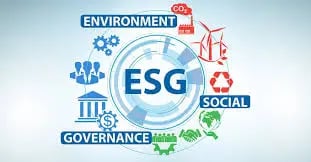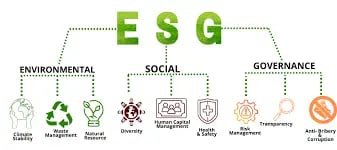SME and ESG
ESG sound not related to SME but is it true?
SMEs and ESG
SMEs are already being affected by the trend towards ESG compliance, and this impact is expected to intensify in the coming years. Here's why:
Supply Chain Pressure: Larger companies, both locally and internationally, are increasingly integrating ESG criteria into their procurement processes. This means that SMEs that want to remain part of their supply chains will need to demonstrate their own ESG compliance.
Access to Finance: Financial institutions are starting to incorporate ESG factors into their lending decisions. SMEs with strong ESG performance may find it easier to access loans and credit at favorable terms, while those with poor ESG credentials may face challenges.
Consumer Preference: Consumers are increasingly demanding products and services from companies that are socially and environmentally responsible. SMEs that ignore ESG may lose market share to competitors with stronger ESG profiles.
Regulatory Requirements: While specific ESG regulations for SMEs in Malaysia are still evolving, there is a growing expectation that all businesses, regardless of size, will need to demonstrate some level of ESG compliance in the future.
Competitive Advantage: SMEs that proactively adopt ESG practices can differentiate themselves from competitors, attract new customers, and improve their brand reputation.
Timeline:
The timeline for SMEs to be significantly impacted by ESG compliance varies depending on several factors, including:
Industry: Some industries, such as textiles and manufacturing, are already facing significant pressure from buyers and investors to improve their ESG performance.
Size: Larger SMEs with more resources may be able to adapt to ESG requirements more quickly than smaller ones.
Market: SMEs that export to markets with stricter ESG regulations, such as the European Union, may need to comply sooner.
However, based on current trends, it is safe to say that the majority of SMEs in Malaysia will need to start addressing ESG issues within the next few years to remain competitive and sustainable.
Recommendations:
Start Early: Don't wait for regulations or customer demands to force your hand. Start incorporating ESG considerations into your business strategy and operations now.
Seek Support: Utilize the resources and support programs available from organizations like the Malaysian Green Technology and Climate Change Corporation (MGTC) and other industry associations.
Focus on Material Issues: Identify the ESG issues that are most material to your business and prioritize those areas for improvement.
Communicate: Be transparent about your ESG efforts and communicate your progress to stakeholders.
By taking proactive steps now, SMEs can position themselves for success in an increasingly ESG-conscious business environment.




